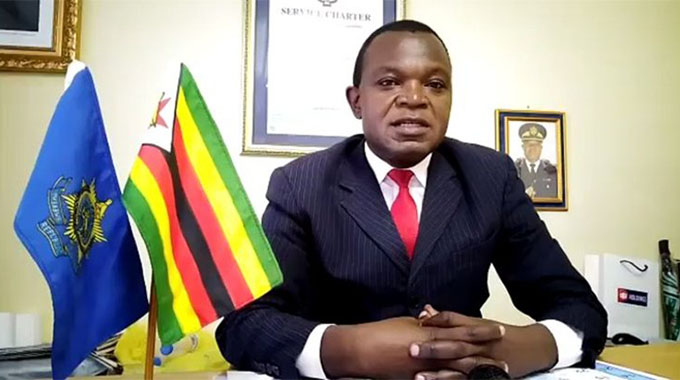Time for struggling businesses to re-invent

Mthabisi Tshuma, Features Correspondent
As the Covid-19 pandemic continues to ravage the African continent and the world at large, lockdowns have become the norm, threatening livelihoods as 70 percent of African businesses are in the informal sector.
Zimbabwe, in particular, has got an economy that is reliant on the informal sector.
According to a 2018 International Monetary Fund report, Zimbabwe has the largest informal economy in Africa contributing just over 60 percent of the country’s Gross Domestic Product.
Informal sector activity has brought relief to many households including those who are formally employed that seek extra streams of income to make ends meet.
The closure of these small businesses has had ripple effects across the communities and cities they once operated in.
The young professional can longer get her hair done by her regular hairdresser who is failing to get hair products from her supplier.
The tout can no longer get a meal from the affordable downtown restaurant whose chicken supplier has ceased production.
These symbiotic relationships exist in many industries and when one player in the value chain sneezes, the rest are most likely to catch a cold.
Business start-ups though by definition are essentially formed to solve a problem and are meant to easily adapt.
This puts them in a better position to quickly change as they are also not affected by the bureaucracy that large corporations have.
Businesses across the world have been affected and most governments in Europe have provided a bailout for start-ups, showing how essential they are.
Unfortunately, it is difficult for some of our African countries to do the same although a few are trying.
Zimbabwe, as announced by President Mnangagwa, released a $18 billion Economic Rescue and Stimulus Package which is designed to scale-up production in all the sectors of the economy in response to the adverse effects of Covid-19.
President Mnangagwa said the funds will be availed to the productive sectors of the economy that include agriculture, tourism, mining, manufacturing and the medium and small-scale enterprises would be assisted through normal banking channels.
Prominent business analyst Mr Kumbirai Chipadza feels there is need for businesses to continuously analyse and re-strategise as the world is now in uncharted territory.
“Firstly, it’s important to think both short term and long term. In the short term, it’s about ensuring your business does not go bust.
“The world is now being defined by essential and non-essentials so one needs to look at their business and see what essential product or service one can provide,” said Mr Chipadza.
The growing need of some products changing their viability from being a need to being a want is, according to Mr Chipadza, a great need for business people to keep on checking up on their clientele in this time of need.
“Business people should ensure that they check in on their customers and clients so that when things are normal, they will remember your concern for them. Hearing their concerns and how they adjust in this situation is of paramount importance.
“For the long term, it is important to re-evaluate your business model and see whether it will still be relevant post-corona or you need to pivot? The exciting part of start-ups is that they are very innovative and stand up during challenging times,” said Mr Chipadza.
Mr Chipadza said businesses have gone digital thus the need for entrepreneurs to quickly embrace the development.
“Even now during the pandemic, the digital platforms and companies like Amazon, Zoom and Western Union are doing well. There has been an increase in online groceries and deliveries and this will continue.
“Governments need to improve internet connectivity so that people in rural areas can also benefit. I see a rush by telco companies to provide such services across Africa as the majority of Africa has no internet connectivity or it is unreliable or expensive. So, this is another huge business opportunity for those who will bridge that gap,” he said.
Mr Chipadza said the future is not bleak, it’s there to be taken and thus entrepreneurs and start-ups should gear up for new opportunities in the business field.
“On a personal level, as an entrepreneur, one needs to start digital marketing, e-meetings and e-networking. The advantage is that all this will also be cheaper for your business. Post the pandemic, we will see less travelling for meetings as well as more people adopting the home office as opposed to renting offices.
“Also, post the pandemic, there will be an influx to the Big 5 sectors namely agriculture, health, logistics/ distribution, fintech and digitalisation/e-learning,” said Mr Chipadza.
Mr Patrick Maseko, a business and leadership coach said informal sector players should re-invent their way of doing things.
“With limited opportunities for employment in the formal sector, most job seekers have sought refuge in the informal economy to eke out a living. The informal economy in Zimbabwe has thus become the country’s largest employer absorbing a significant chunk of the labour force.
“The coronavirus pandemic now poses a threat to the country’s small businesses. Lockdown restrictions have resulted in a shutdown of the sector as most operators are considered non-essential. For operators that have chosen to go against the authorities and continue running their businesses, sales have been very low considering their dependence on high foot traffic. In a bid to absorb the shock of reduced income levels, some small business owners have had to let go of their employees and in worst case scenarios, they have had to close shop altogether,” said Mr Maseko.
As the economy is slowly recurring, Mr Maseko said this is the right time for entrepreneurs to choose a viable line of production.
“As the economy slowly reopens and as we move into the new normal, small businesses seeking to get back into the game will have to readjust their business models. Even if Government gave the green light for all sectors to reopen, small businesses still need to choose if, how and when to reopen. This will not be an easy action given the changes in consumer behaviour that have also resulted from the lockdown.
“It is now critical for small business owners to assess what has changed temporarily or permanently across their suppliers, customers and distribution chains. An internal SWOT (strengths, weaknesses, opportunities, threats) and external PESTEL (political, economic, social, technological, environmental, legal) analysis will need to be performed by any prudent business owner to develop and establish new leverage points for their business,” he said.
Mr Maseko continued: “It is folly for a small business owner to assume that their customers will automatically come back post Covid-19. Everyone’s world has been turned upside down and customers have not been spared. Consumers are re-evaluating their choices and each business needs to be on the pulse with regards to what customers now want. Before resuming any production or service delivery, the business owner has to ensure that the supply chain and distribution ecosystem are ready to meet the new needs of the customer.”
While businesses have realised that they do not need traditional brick and mortar spaces as employees can be just as productive working from home, customers have also realised that they need not frequent such buildings to get assistance.
As such, customers have been spending more time online and businesses now need to mobilise its customers where they are found, online.
As physical spaces pause worldwide, the virtual space has opened its doors and businesses need to move their products and inventories online.
“One of the biggest risks faced by small businesses is running out of money. While small business owners are clear about their day to day expenditure, keeping track of actual revenue is a challenge because business and personal revenue are not clearly distinguished.
“This information asymmetry is disastrous but nothing a basic financial education can’t solve. This lockdown downtime is a good opportunity to reskill and upskill. There are more free online courses being offered due to the lockdown and a small business owner would do well to subscribe to relevant courses,” said Mr Maseko.
Another business expert, Ms Nomvula Dube said, “Entrepreneurs and business visionaries ought to likewise utilise this lockdown period to extend and widen the comprehension of their business sectors.
Understanding their business sectors presently will diminish the time required to fabricate footing after the lockdown. Given that most things are fairly wild, a piece of decent information available and of the business will help the entrepreneur viably scale what they have power over. Figuring out how to be gainful in seclusion is along these lines a basic ability for this time we are living in.”
Therefore, as the nation gears up for the reopening of the informal sector, the ball is in the court for informal sector entrepreneurs to reinvent their business models. – @mthabisi_mthire.










Comments